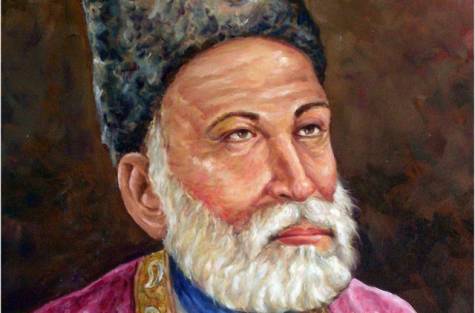Papers were presumed destroyed 50 years ago

New Delhi:
In a thrilling discovery for lovers of Urdu poetry, the original manuscript of famous poet Mirza Ghalib’s verses has miraculously survived after being reported missing and presumed destroyed almost 50 years ago.
Penned in 1821 by Mirza Asadullah Khan Ghalib, the original manuscript — Nuskha-e-Hameediya — survived after being reported missing during the 1940s’ India — Pakistan division.
Commissioned by Nawab Faujdar Mohammad Khan and penned by calligrapher Hafiz Mueenuddin, the manuscript features some of the most authentic and beautiful Urdu poetry ever written.
After years of believing that the manuscript was missing and accepting doctored and amended versions of this work as ‘authentic’, Urdu poetry lovers can finally see the genius of Ghalib as it was originally intended.
The discovery of the original manuscript has sparked celebrations in the creative community, especially the researchers on the works of Mirza Ghailb, many of whom are thrilled that the doctored and amended texts will not go down in history as the definitive poems.
The manuscript was the first of the nine known manuscripts of the ‘Divans of Ghalib’, commissioned when Ghalib was just 24 years of age. Accounts from scholars and publishers say the original manuscript contained almost 1,800 verses, nearly twice the number of verses that were published in the “authorised” version in 1941. While writing, Ghalib did not find the omitted verses fit for publication, but true poetry lovers were ever keen to read the missing text.
In 1969, Professor Hamid Ahmad Khan wrote that he examined the manuscript in 1938, but did not keep extensive notes on his thoughts regarding the omitted piece, later going on to publish a ‘corrected’ version of the poems.
By the time the corrected version of the poems had been released, the actual manuscript had disappeared, presumed missing or possibly destroyed during the India — Pakistan division back in 1947. With no original text as evidence, readers had to accept that Professor Khan’s version as authentic.
Husaini Arts online art gallery and museum takes the credit for the find.
“This is indeed an incredible find and we are extremely thrilled that we now get to read the original manuscript, which is almost 200 years old. Urdu poetry lovers everywhere will be rejoicing at this news that the original text can now be added to the canon of work Mirza Ghalib worked on. The original Nuskha-e-Hameediya is about to be brought to light, and all those who love Urdu poetry are about to see the true, authentic text that Ghalib first intended to be read by the elite in the 19th century,” a Husaini Arts spokesperson told Gulf News.
Ghalib, born Mirza Asadullah Baig Khan on December 27, 1797, was the pre-eminent Indian Urdu and Persian poet during the last years of the Mughal empire. He used pen-names of Ghalib and Asad. During his lifetime, the Mughals were eclipsed and displaced by the British and finally deposed following the defeat of the Indian rebellion of 1857, events that he wrote of.
Most notably, he wrote several ghazals during his lifetime, which have since been interpreted and sung in many different ways by different people. Ghalib, the last great poet of the Mughal era, is considered to be one of the most popular and influential poets of the Urdu language. Today Ghalib remains popular not only in India and Pakistan but also among diaspora communities around the world.
source: http://www.gulfnews.com / Gulf News / Home> News> World> India / by Karuna Madan, Correspondent / August 18th, 2014








